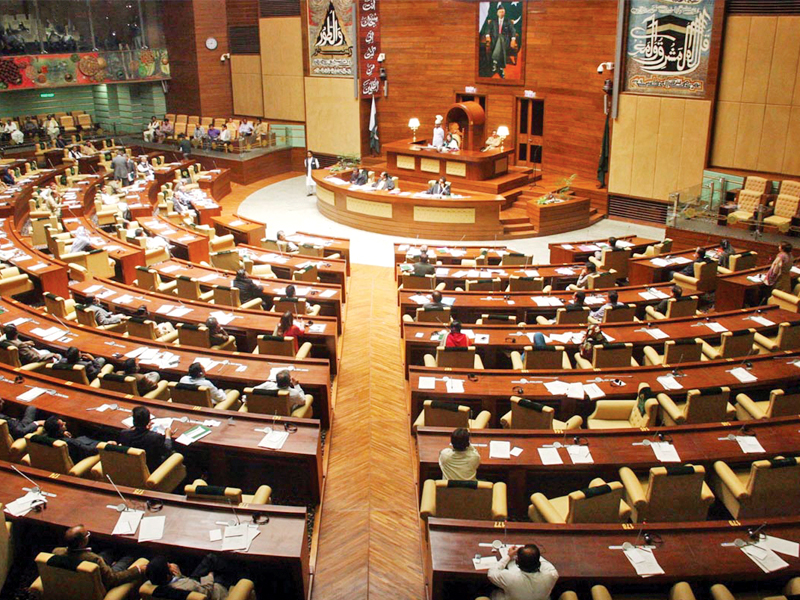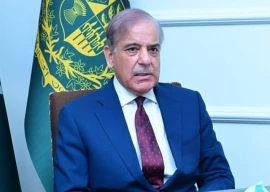
Afterwards things turned sour as members of the opposition - from the Pakistan Muslim League - Functional (PML-F) and Muttahida Qaumi Movement (MQM), got up and left in protest for two different issues.
Walking out
Despite the opposition's repeated requested to consult with them on legislation before moving bills in the session, the government tabled around seven bills in the agenda and wanted them all to go through. As minister for parliamentary affairs Dr Sikandar Mandhro presented the Sindh Public-Private Partnership Bill.
The leader of the opposition, Shahayar Mahar, raised an objection said that it was not fair. "You are running the House in a non-democratic way," he said. "You should share these bills with us before the session or refer them to the standing committee for a review."
When the provincial ministers insisted to go ahead with the bills, Mahar stood up and said that they could not sit in the House and be a part of the legislation process. Sindh Information Minister Sharjeel Memon and Dr Mandhro tried to talk to Mahar but he walked out of the session with members of the PML-F and PML-N.
The Muttahida Qaumi Movement walked out in protest over the death of their party worker in Punjab.

The bills
The five bills presented during Wednesday's session were passed in 40 minutes - around eight minutes were spent on each.
At the time of legislation, around 35 MPAs of the Pakistan Peoples Party were present in the assembly - which has 168 members in total. There was no debate or lengthy speeches on the law as less than one-fourth of the assembly's members were present.
The National Institute of Cardiovascular Diseases Bill was moved by Sindh minister for for parliamentary affairs, Dr Sikandar Mandhro. He said that after the 18th Amendment, the subject of health had been devolved to the provinces. He added that earlier, this institute was under the administrative control of the federal government but after this legislation, it will be under the control of the Sindh government.
Within the next eight minutes, another bill was passed. This was about improving the quality and curriculum of text books and assessments to attain the minimum school education standard. Dr Mandho moved the Sindh School Education Standard and Curriculum Bill 2014 and said that it aimed to supervise the standard of education.
The government will also establish a council, Sindh Curriculum Council, for effective implementation of this act. Sindh Education Minister will their chairperson and secretary education will report as the vice-chairperson.
The assembly also repealed and re-enacted the Sindh Employees Old-Age Benefit Bill for people employed in the industrial, commercial and other organisations in the province. This means that now the provincial government will generate and maintain the old-age benefit accounts and pay the monthly old-age pension to insured persons or their spouses.
Bills to establish the Larkana Development Authority and Sindh Public and Private Partnership were also passed. Three other bills, including the Mass Transit Authority Bill, Sindh Workers Welfare Fund Bill and Sindh Senior Citizens Welfare Bill were referred to the standing committees for reviewing.
Published in The Express Tribune, December 11th, 2014.





























1713853507-0/MalalaHilary-(2)1713853507-0-270x192.webp)








COMMENTS
Comments are moderated and generally will be posted if they are on-topic and not abusive.
For more information, please see our Comments FAQ